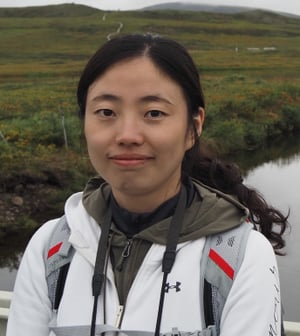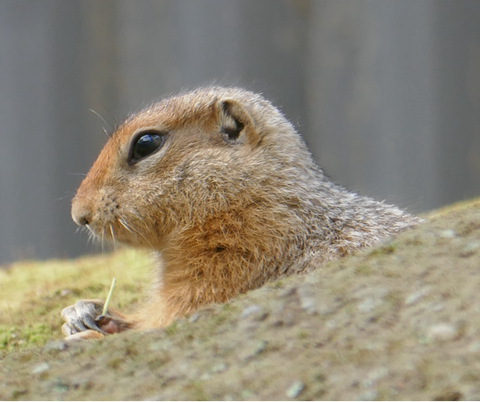UAF Hibernation Science Workshop参加レポート(1)
学会・領域会議参加2023-10-14
Hibernation Adventure in Alaska
Jing Lei (National Institute for Physiological Sciences)

During Aug.7-14, 2023, I attended the 1st University of Alaska Fairbanks (UAF) Residential Hibernation Science Workshop, which was a memorable experience for me. This workshop was comprised of a classroom lecture in UAF (Aug.7-14) and training in Toolik Field Station (TFS, Aug.15-18), which is an Arctic research station managed by UAF. This trip started with some necessary preparation beforehand, including the insurance for Medevac (emergency transport by air), and outdoor equipment.
<Lecture about Hibernation Biology>
After arriving at UAF, I learned about hibernation biology through lectures, which not only covered the basic knowledge about the circannual cycle in hibernators but also discussed its application to the study of hibernation in humans. While I had known hibernation research in Japan focused on hamsters and chipmunks, in the United States, the main focus is on thirteen-lined ground squirrels, with other studies involving bears and marmots. What impressed me was that hibernation processes vary among different hibernators based on factors like their size, gender, habitat, and ambient temperature. Moreover, this workshop involved more than just lectures. We actively participated in class activities, including designing a poster about "what a human hibernator would be" and conducting a simple yet impressive experiment on supercooling to understand "how hibernators protect themselves from freezing".

<Journey Beyond the Arctic Circle>
Starting from Fairbanks, where the UAF is located, we embarked on a 12-hour bus journey along the Dalton Highway. We traveled along the Trans-Alaska Pipeline, witnessing incredible scenery such as the stretched Brooks Range, boreal forest, and rolling tundra, as we made our way beyond the Arctic Circle to the TFS. TFS is situated in an uninhabited Arctic region just beyond the Brooks Range, but it boasts amazing facilities. Over 100 researchers conduct arctic research in various fields, including permafrost, ecosystems, and the effects of climate change. Here, we had the opportunity to trap arctic ground squirrels in the wild. The following day, we went hiking in the Brooks Range. Although we didn't spot much wildlife, we explored the magnificent untouched wilderness where few people ventured.

By participating in this workshop, I gained a deep understanding of hibernation that I wouldn't have obtained just by reading research papers. I also had the chance to experience nature in a way that I might never get to do again in my lifetime. Finally, I would like to express my gratitude for the grant support (Hibernation Biology 2.0) and a workshop fellowship sponsored by UAF that made this possible.
